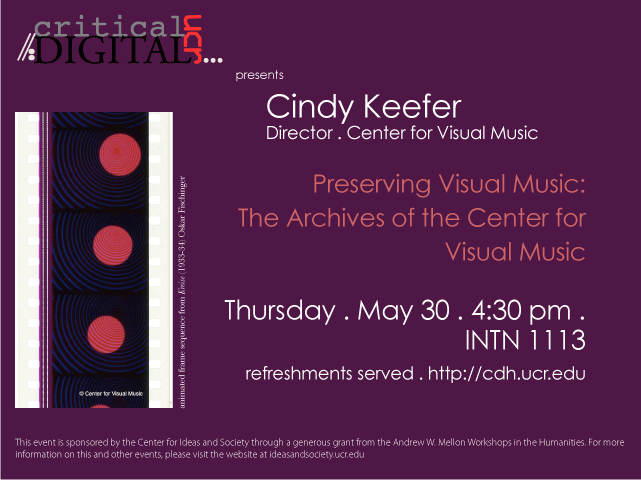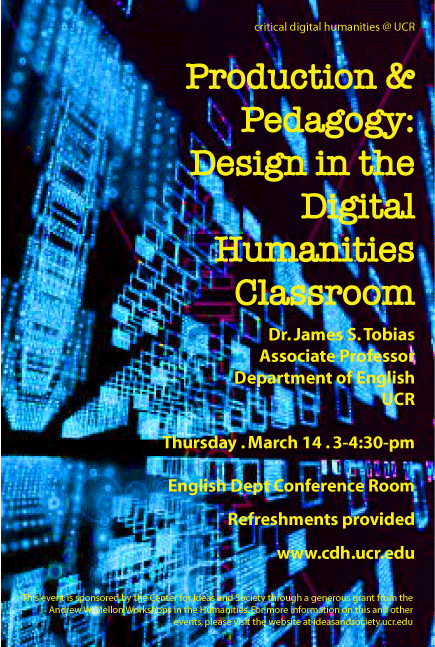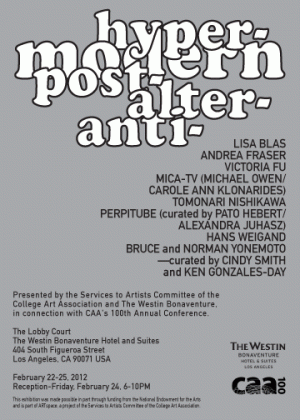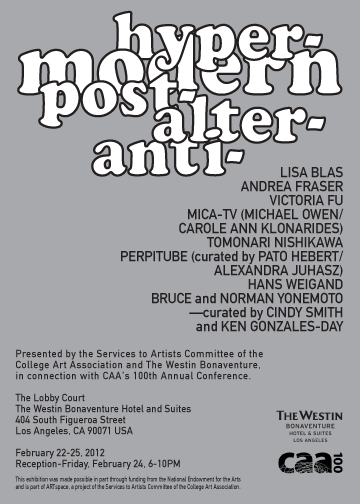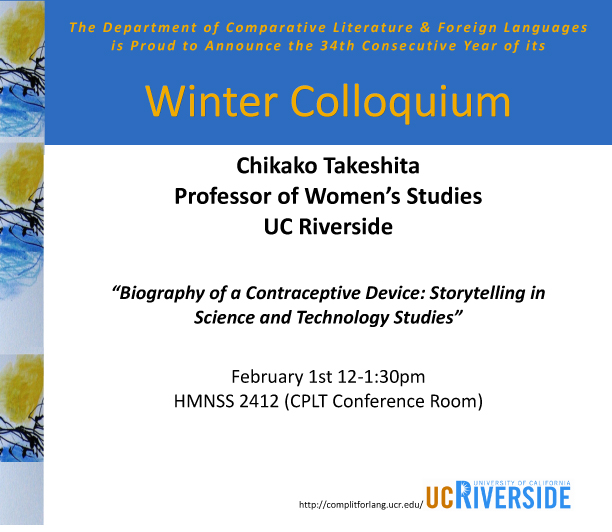Posts from the ‘educational multimedia’ Category
by Ian Ross
The pedagogical implementations of digital technology have been widely hailed, but are frequently implemented in the form of making traditional pedagogical procedures more conveniently accessible (online classrooms, digital office hours, etc.). However, there is a largely ignored degree to which digital production by students is helpful to composition, comprehension, and critical thinking in the classroom. Unfortunately, the primary roadblock to pedagogical digital production in curriculum centering around this production is the inaccessibility of coding as a means of that writing. However, if this process can be made more accessible, the constructed nature of binary code, as well as its inability to work with logical fallacy, has the potential to illustrate much clearer narratological and argumentative skills to novice writers.
In an attempt to work around this problem, I have enacted a classroom project based around the free and universally available program Inform7, an interactive text based video game production space designed to use English language “coding” to create digital spaces with which the audience can interact. The first attempt at this project involved individual students building games using a peer produced message board for guidance, produced limited results, and ended with most students circulating around an “expert” with previous experience. However, the second attempt was designed as a group project and guided by a greater amount of classroom instruction. Students in groups of four posted their games along with the code, and were asked to play the games designed by the three other groups before looking at the code that Inform7 translated into gameplay.
This structure created an identifiable divide between author and audience, and allowed for a direct discussion of narrative production, symbol, icon, and metaphor. The program uses binary logic (i.e. one thing cannot be two things) within an English language code to produce games. Giving “objects” (which are defined by description, portability, and/or their ability to contain other objects) names helped students understand the arbitrary nature of language and concepts like simulacra. For instance, a container is given size by the decoding audience: there is no difference between a “wallet” and a “bucket” unless the programmer provides a difference. Using language to define meaning, and illustrating the degree to which this takes place in everyday life is a central benefit to this project.
Putting the student in the position of the creator allows the student to more clearly understand how creation takes place as well. In my second attempt with this project, students worked around coding limitations in ways that were not apparent to their intended audience when playing. One group built a door called “the laptop”, locked it with “the flashdrive” and then named each attached room a different URL address. This created a user experience of interacting with a spatially static computer, while the translating program understood what was happening as geographical movement and location. Once students outside of the group both looked at the code designed to create this world and had played the game itself, they began to comprehend the degree to which
narrative can potentially step outside of perceived media limitations. Additionally, students who either built or played this specific game were then able to more clearly engage in close reading and authorship when they were confronted with the digital illusion of reality, as well as understand the benefits and meaning production of metaphor.
These were only a few of the ways integrating this process into classroom activity allowed for a deeper and more apparent discussion of the abilities one has access to as a writer as well as the methods of readership which take place invisibly around various socially constructed symbols. Allowing for programs like Inform7, and for the creation of more specialized programming in the classroom like it, is the first important step to bridging the digital divide in a way that will provide students with clear pedagogical connections to necessary comprehension and critical thinking skills.
For those curious, the links to Inform7 (the program used to build these games) and Frotz (the program used to play them) are below. Think of Inform7 as the software (i.e. videogame disc) and Frotz as the hardware (Console system) if the process seems confusing:
Cindy Keefer, Archivist, Curator & Director . Center for Visual Music
Preserving Visual Music : The Archives of the Center for Visual Music
THURSDAY . May 30 . 4:30 PM . INTN 1113 . Refreshments served .
Cindy Keefer, Director of the Center for Visual Music Los Angeles, will discuss and screen work by pioneers of kinetic art, abstract animation and pre-digital cinema from CVM’s archives. CVM is a Los Angeles archive dedicated to visual music, experimental animation and abstract media. CVM preserves and promotes films by Oskar Fischinger, Jordan Belson, Charles Dockum, Mary Ellen Bute, Jules Engel, Harry Smith and others, as well as contemporary artists. Keefer will screen work from CVM’s archives by Fischinger and Belson, plus Dockum’s Mobilcolor Projections, Bute’s Abstronics (an early oscilloscope film), a short Bute documentary, and more. She will also discuss Belson’s now legendary 1950s Vortex Concerts, CVM’s work with the Fischinger legacy, current preservation work, and Raumlichtkunst, the new HD 3-screen reconstruction of Fischinger’s 1920s multiple-projector performances, recently exhibited at the Whitney Museum, the Tate Modern, and scheduled for exhibition at the Palais de Tokyo in Paris in summer 2013.
This is the last event CDH will host for the 2012-2013 season. Please join us for this exciting presentation.
New CDH Talk : Production & Pedagogy with Professor James S. Tobias
February 25th, 2013
April Durham
Production and Pedagogy: Design in the Digital Humanities Classroom
Dr. James S. Tobias . Associate Professor . Department of English . UC Riverside
Thursday . March 14 . 3-4:30 pm . English Department Conference Room
Refreshments provided.
This event is sponsored by the Center for Ideas and Society through a generous grant from the Andrew W. Mellon Foundation. For more information on this and other events, please visit the website at ideasandsociaty.ucr.edu
I heard about this summer workshop that might interest some of us. It’s at UC Irvine and includes travel, lodging, and food costs for the week.
Values in Design Workshop – August 19-26, 2012
Take part in an intensive one-week workshop on values in the design of information systems and technology. Doctoral students at any stage from a variety of disciplines are invited to attend, including – but not restricted to – informatics, computer science, science studies, design, visual arts, and social entrepreneurship. Travel, food, and lodging will be covered, though accepted participants are encouraged to seek support from their home institutions.
The workshop will be restricted to twenty (20) students. Mornings will be devoted to discussing a judicious mix of readings and exercises from the fields above, led by Geoffrey C. Bowker, Judith Gregory, and Cory Knobel. In the afternoons, students will work in interdisciplinary groups to produce a project plan incorporating strong social values into information systems and technology, with guest lectures from thought leaders such as Paul Dourish, Helen Nissenbaum, and Carl DiSalvo throughout the week. The workshop will close with project presentations to a panel of academics and entrepreneurs. We will offer support and rewards for projects that continue on to working prototypes and project launch.
The Comparative Literature department Winter Colloquium is initiating interdisciplinary discussions around narrative discourse and research from a variety of approaches. Next week we are hosting a lecture that might be of interest to CDHers. Dr. Takeshita from the Women’s Studies department is speaking about “Storytelling in Science and Technology Studies.” We would be happy to welcome any visitors for whom this is helpful for ongoing research.
Details are as follows:
Weds, Feb 1 . 12-1:30 pm . HMNSS 2412 (Comp Lit Conference Room). Please see the flier below.
Last week Apple announced a free download of its “book authoring” software for iBooks, “iBook Author” – the PR is at
http://www.apple.com/ibooks-author/
iBook Author appears to be an updated, more graphical and better integrated version of the free app authoring software tools for developers Apple has offered for a couple of years now, but that haven’t yet been well suited for more general users. It requires OSX 10.6.8, to which many Mac computers older than 5 or 6 years can’t be upgraded (if you have a Core Duo instead of a Core 2 Duo, for instance, you’re out of luck). Reviews are early and tentative and not worth linking to here as yet. But according to one report, the iBook Author format is proprietary instead of aimed at supporting open authoring of “digital book” formats, so the usual complaints are already flowing.
http://www.zdnet.com/blog/bott/how-apple-is-sabotaging-an-open-standard-for-digital-books/4378
Generally, if you want to take full advantage of proprietary features of a specific hardware/software platform, you’re likely to have a problem meeting “open” compatibility standards to some meaningful degree. So that complaint is hardly surprising.
But the pitch Apple is making is not to pre-empt open standards for “digital books” (yuck!) per se, and rather to prime educational multimedia publishing with better support for (of course) iPad-oriented educational multimedia (shades of Hypercard!), for educational markets. I’ll be upgrading to a new laptop soon (yes, my MacBook is that old!) and will be checking the software out soon. I’ll keep you posted.

